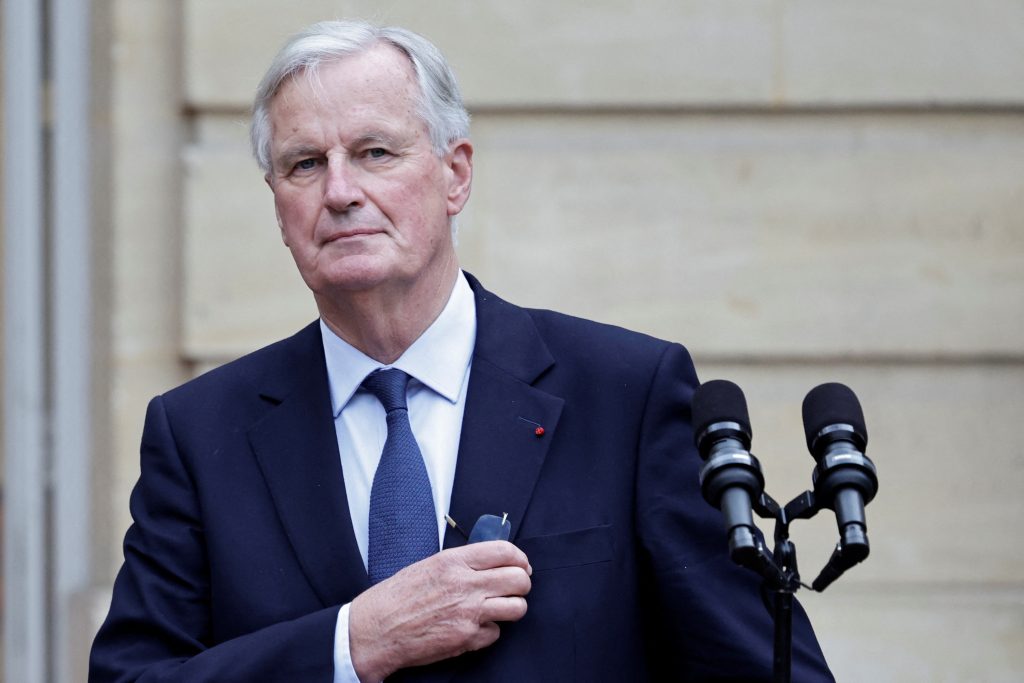France saw a significant political shift on Saturday as President Emmanuel Macron appointed a new right-leaning government, sparking protests from left-wing demonstrators who claim it disregards the results of July’s parliamentary elections. The new cabinet, led by Prime Minister Michel Barnier, was unveiled 11 weeks after the election produced a hung parliament. Barnier’s initial priority will be to present a 2025 budget plan, as he has described France’s financial situation as “very serious.”
Barnier, a conservative figure internationally recognised for leading the EU’s Brexit negotiations, faced the tough task of assembling a cabinet that could survive a no-confidence vote in parliament, with negotiations continuing up until the official announcement on Saturday.
Left-wing opposition parties have already declared they will challenge the newly appointed government. In the July elections, the left-wing New Popular Front (NFP) secured the largest bloc of parliamentary seats but failed to gain an outright majority. Macron argued that the left lacked sufficient support to form a stable government and instead called on Barnier to lead a coalition supported by Macron’s centrist allies, the conservative Republicans (LR), and centrist groups.

The new government quickly came under fire from across the political spectrum. Jordan Bardella, leader of the far-right National Rally (RN), criticised the new cabinet, claiming it signalled “a return to Macronism” and had “no future.”
On the opposite side, far-left leader Jean-Luc Mélenchon described the new cabinet as a government of the election losers and called for its removal. His party vowed to escalate public pressure against the administration.
Among the key appointments is Jean-Noël Barrot as Foreign Minister and Bruno Retailleau, a staunch conservative, as Interior Minister, whose hardline stance on immigration has raised concerns even within Macron’s camp. Defence Minister Sébastien Lecornu retained his position, while the 33-year-old Antoine Armand, who previously chaired parliament’s economic affairs commission, took over as Finance Minister, tasked with addressing France’s rising deficit.
The only left-leaning member of the cabinet is Didier Migaud, a little-known former Socialist, who was appointed Justice Minister.
Even before the official announcement, thousands of protesters took to the streets in Paris and other cities, arguing that the new government does not reflect the will of the voters. The absence of any representation from the NFP bloc in the cabinet has fuelled public outrage.
Barnier is scheduled to deliver a major policy speech in parliament on 1 October. His administration faces the immediate challenge of presenting a budget aimed at tackling France’s growing deficit, with public debt expected to surpass 6 percent of GDP in 2025, well above the EU’s 3 percent limit.
France had already been placed under a formal procedure for breaching EU budgetary rules prior to Barnier’s appointment, adding further pressure to his new government. The new cabinet’s first meeting is set for Monday afternoon.


